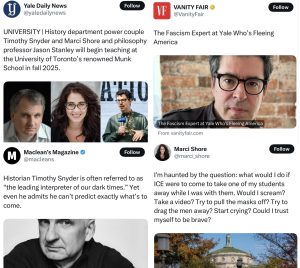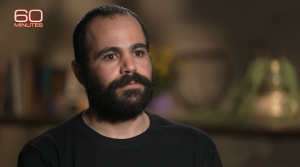Edmonton’s Jewish community has renewed its call for the removal of two memorials that glorify Ukrainians who fought alongside Nazis in the Second World War.
The monuments, and Canada’s record on admitting suspected Nazi war criminals after the war, have been in the spotlight after the House of Commons recognized a 98-year-old Ukrainian veteran who voluntarily joined the 14th Waffen SS, which fought alongside Nazi units.
Yaroslav Hunka, who was sitting in the visitor’s gallery, was honoured with a standing ovation from members of Parliament in the House of Commons on Sept. 22, during Ukrainian President Volodymyr Zelensky’s visit to Ottawa.
Hunka was introduced by Anthony Rota, Speaker of the House of Commons, as a “Ukrainian hero, a Canadian hero.” At the time, MPs said they were unaware of Hunka’s military background.
Since that honour, Rota has resigned as the Speaker and Prime Minister Justin Trudeau has apologized for the incident.
The political firestorm has refocused attention on monuments in memory of Ukrainians who fought alongside Nazis. Two memorials are in Edmonton, while one is in a private cemetery in Oakville, Ont.
The Edmonton Jewish community has asked numerous times that the monuments, one honouring members of the 14th Waffen SS, the division that Hunka joined, and the other a bust of Roman Shukhevyech, leader of a battalion that has been implicated in mass shootings of Jews in 1941, be removed or be placed in a museum with proper educational context, said Steve Shafir co-chair of the Jewish Federation of Edmonton’s community relations committee.
“It’s important to note while Ukrainians are entitled to self-determination and to have heroes in respect of their national ambitions, they cannot whitewash the atrocities committed by some of the people they are glorifying,” Shafir said in an interview with The CJN.
Both monuments are on private property. The memorial to the Waffen SS and other fighters is in St. Michaels’ Cemetery, while the statue of Shukhevyech sits on the grounds of the Ukrainian Youth Unity Complex, which receives government funds for its programs, Shafir noted.
“The presence of these statues as currently situated is offensive to members of our community, to the victims and survivors of the Holocaust and their families and to the victims of the atrocities committed,” the Jewish Federation of Edmonton said in a press release.
B’nai Brith Canada and Friends of Simon Wiesenthal Center have also repeatedly called for the monuments to be removed.
“It’s important that we bring light to this, especially right now. Given what happened in Parliament, I think it is fair to say there is a sore lack of understanding of not only what happened in the Holocaust, but also Canada’s role in allowing these people to come to Canada afterward and giving them safe harbour since their arrival,” Shafir said.

The Edmonton monuments were vandalized in 2021. Red paint was thrown on the bust of Shukhevych, with the words “Actual Nazi” painted on it. Graffiti reading “Nazi monument” and “14th Waffen SS” were scrawled on the monument in St. Michael’s Cemetery.
Meanwhile, the University of Alberta closed an endowment made in honour of Hunka and his wife and returned the $30,000 to his family. The endowment had been established by Hunka’s children in 2019 at the university’s Canadian Institute of Ukrainian Studies “to support research related to the Ukrainian Catholic Church, with preference given to investigations of the lives and work of Metropolitan Andrei Sheptysky and Metropolitan (Cardinal) Iosyf Slipyj and the history of the underground church.”
“The university recognizes and regrets the unintended harm caused,” Verna Yiu, interim provost and vice-president (academic) said in a statement. “On behalf of the university, I want to express our commitment to address antisemitism in any of its manifestations, including the ways in which the Holocaust continues to resonate in the present.”
The university also said it is reviewing its “general naming policies and procedures, including those for endowments.”
The federation had not asked for the endowment to be closed, but was encouraged by the university’s actions, Shafir said.
The incident also highlights the need for more education about the Holocaust, Shafir said, and the federation is calling on Alberta, which is currently re-evaluating its social studies curriculum, to follow Ontario’s lead and make Holocaust education mandatory.







